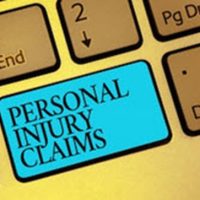The Role of the Investigator in an Injury Case

When there is an accident, often attorneys will talk about getting an investigator to the scene, or having a private investigator get information. But what does that mean—what does an investigator actually do, in terms of investigating the circumstances of an accident?
Why Is an Investigator Needed?
Before explaining what an accident investigator does, it’s important to know why they are so important.
In cases where the facts of an accident are in dispute or there are two versions of something that happened, experts, like accident reconstructionists, can often be used to help a jury understand what actually happened.
But accident deconstructionists need information, data, and facts, to form their opinion, and to recreate what happened at the accident scene. That information comes from data gathered by the private investigator.
Contacting Witnesses
One thing that an investigator may do, is contact witnesses to the accident. The identification of those witnesses is often found on the police report. The investigator will reach out to those witnesses, to see what they observed, and possibly, to get a statement from them, which is helpful because as time goes on, witness’ memories tend to fade.
The investigator will also see if any witnesses may have taken pictures or videos that could be helpful.
Looking at the Accident Scene
An investigator will go to the scene of the accident itself. Because an accident scene gets cleaned up relatively quickly, it’s best to get an investigator out as soon as possible.
An investigator will look at and photograph any dangerous conditions that may have caused a fall, or in a car accident, may look for skid marks on the road or damage to the side of the road that would indicate where the cars ended up after the collision.
Getting Video
The investigator also may reach out to any businesses nearby, which may have had cameras recording streets or public areas. This is why it is vital to send out letters to any businesses that may be anywhere near the accident; you just don’t know who may have had a camera recording in the area of the accident, and you don’t want that video lost or destroyed.
Looking at the Scene
The investigator will also note the conditions on the roadway that may have affected the accident. For example, overgrown shrubbery, or road constriction, could have obstructed views.
In some cases, an investigator may even use a drone, to give the jury an overhead view of traffic patterns, obstacles, or who could see what at the time of the accident.
Looking at Public Records
Investigators can do public record searches as well. For example, if a modification was made to a building and you were injured in the area, is the modification up to city code? Were all permits pulled to make the modification?
If an intersection is constructed dangerously, the investigator may try to see if other people have complained, or if city engineers themselves had issues with the design of an intersection or traffic flow pattern or traffic light interval timing.
Call the Boston personal injury lawyers at The Law Office of Joseph Linnehan, Jr. today at 617-275-4200 for help; we can investigate the facts surrounding your accident and see if you have a case for compensation for your injuries.
Sources:
plaintiffmagazine.com/recent-issues/item/vehicle-accident-scene-investigation
csi-securesolutions.com/what-is-the-role-of-the-private-investigator-in-a-personal-injury-case/
